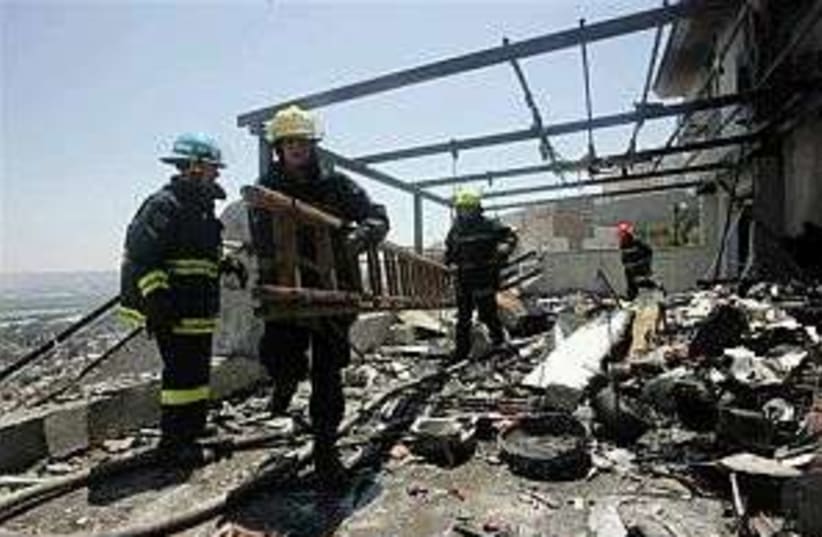Over 90 rockets were fired at northern Israel on Sunday, the 12th day since the war in the north erupted. In total, 93 people were wounded, most of whom suffered from shock.
Two people were killed in a barrage that struck Haifa in the morning hours.
The rocket that fell in the courtyard of their large apartment complex in Haifa late Sunday afternoon caused the Sabag family to pack its bags and head for the home of relatives in Rishon Lezion.
"I'm not a hero," said Nurit Sabag as she sat on her front lawn while police and emergency personnel cleaned up the broken glass and shards of metal from the missile.
The hit to the complex was one of more than 14 rockets that Hizbullah successfully launched from Lebanon into Israel's third largest city on Sunday.
Earlier in the day, a rocket killed Shimon Glickglich, 60, as he drove his car on a main street in the city. A second rocket that fell on a carpentry shop in Kirtat Ata killed Haviv Ova'ad, 48.
Upwards of 14 people were wounded in the attacks, including one seriously and two moderately.
There were so many successive warning sirens that, in a number of instances, rescue and clean-up crews who came to the scenes of the rocket attacks had to race for cover, even as they worked to clear the sites of the initial attacks.
But no siren rang out around 5 p.m. on Sunday afternoon to warn the Sabag family, or the dozens of others who live in their neighborhood near the sea in Haifa, that a rocket was about to fall. Shir Sabag, 13, and her older sister Shavi said that the absence of a warning explained why they were not in the protected room when the rocket hit a tree, a gas balloon and the wall of the apartment building.
When they heard the loud explosion they first raced to a safe spot in the house, but when informed that the rocket might have hit a gas balloon they ran out of their home in the bottom corner of the complex to a spot several doors away from the attack.
They told 
